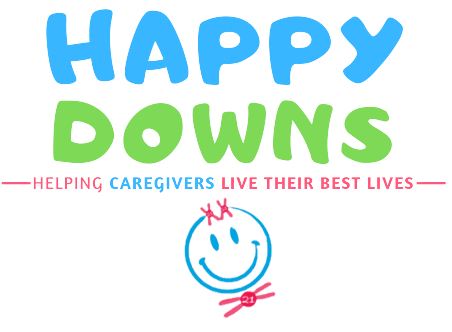Adults with Down Syndrome have unique strengths, perspectives, and interests. Recognizing these traits and moving beyond stereotypes is key to encouraging meaningful hobbies. When introducing hobbies, think about your loved one’s likes, skills, and what makes them happy. By tailoring activities to their strengths and celebrating their individuality, family caregivers can help foster confidence and a love of learning.
Discovering Individual Interests
Ask yourself:
- What activities make your loved one smile or spark their interest?
- Do they have natural talents or activities they already gravitate toward?
Spend time exploring these questions with them. Casual conversations, storytelling, or observing their reactions during various activities can offer clues about what might engage them.
Tip: If they struggle to express preferences verbally, look for non-verbal cues like body language, facial expressions, and reactions to different stimuli.
Choosing The Right Hobbies: Aligning Interests And Abilities

Choose hobbies that match their interests and abilities while providing gentle challenges. Here are a few ideas:
- Music and Dance: Instruments, singing, or dance classes can be joyful outlets.
- Creative Arts: Painting, pottery, or crafting allow them to express themselves.
- Sports and Physical Activities: Swimming, hiking, or general exercise can support physical health and confidence.
- Gardening: A calming, hands-on activity that lets them engage with nature.
- Social Games or Puzzles: Board games or puzzles can help improve cognitive skills and social interaction.
Practical Tip: Start with an introductory session to gauge their response. Some hobbies, like dance or sports, may work better in group settings where they can interact and feel part of a community.
Encouraging Participation In Structured Activities
Structured activities like group classes or workshops are excellent ways to learn new hobbies. Programs offered at community centers or specialized organizations often provide group settings tailored to adults with Down Syndrome. These can include art, sports, or music classes.
Benefits of Structured Programs:
- Social Interaction: Meeting peers fosters a sense of belonging and helps build social skills.
- Routine and Engagement: Regular sessions create a comfortable routine, making it easier for them to commit.
- Trained Instructors: Many programs have instructors who understand how to adjust the pace and methods for adults with Down Syndrome.
Tip: Contact local community centers or organizations, especially the ones that specialize in inclusive programs for adults with disabilities, to find classes that may align with your loved one’s interests. If no inclusive program exists, your family may have to blaze the path by approaching these organizations and convincing them to let your loved one try their program. You will get some “No’s”, but all you need is one “Yes”.
Overcoming Challenges And Encouraging Perseverance
Learning a new skill comes with challenges. Here’s how to help:
- Set Small, Achievable Goals: Breaking down activities into steps can make the experience more enjoyable.
- Celebrate Every Milestone: Recognize both big and small accomplishments to build motivation.
- Stay Flexible: If one activity doesn’t work out, try another. Adaptation is part of the journey.
Creating A Supportive Environment For Sustained Engagement

Building a supportive environment ensures that they continue engaging in activities over time. Here’s how:
- Provide Accessible Tools and Resources: Keep supplies on hand, like art materials or sports gear, to encourage regular participation.
- Adapt to Changing Interests: Their interests and abilities may change, so staying open to trying new activities is key.
- Encourage Independence: As they grow confident in their hobbies, consider ways for them to take on more independence, like helping set up materials or preparing for the activity themselves.
Tip: Encourage family and friends to join in activities or show interest in their hobbies. This support network creates a warm, encouraging space for them to thrive.
Empowering Through Hobbies
Hobbies can be more than just activities—they’re pathways to self-discovery, confidence, and independence. By focusing on their unique strengths and providing gentle guidance, family caregivers can help adults with Down Syndrome explore new worlds and find joy in meaningful pursuits.




